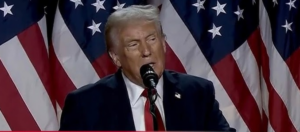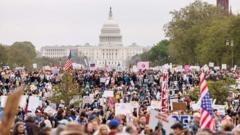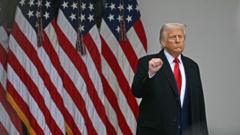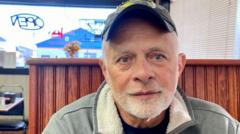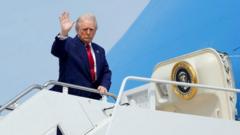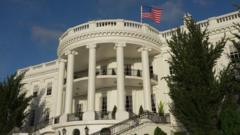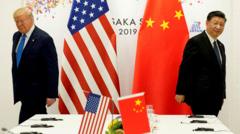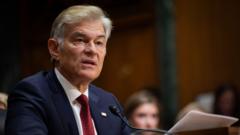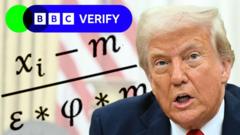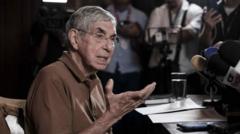Demonstrators in cities nationwide voiced concerns over various issues linked to Donald Trump's administration, including immigration policies and economic decisions, culminating in a significant show of opposition dubbed the "Hands Off" movement as protests also spread to Europe.
Nationwide 'Hands Off' Protests Target Trump Policies
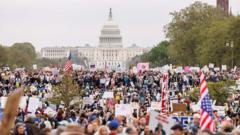
Nationwide 'Hands Off' Protests Target Trump Policies
Protests across the U.S. rally against Trump's presidency, aligning with international dissent in key cities.
Thousands of demonstrators rallied in major cities across the United States on Saturday as part of a nationwide protest against President Donald Trump, marking the largest organized opposition since his inauguration. Coordinated under the "Hands Off" banner, the protests aimed to mobilize support simultaneously in over 1,200 locations across all 50 states, with significant turnout in cities like Boston, Los Angeles, New York, Chicago, and Washington D.C. The protests come in response to various grievances, including Trump's recent tariff announcements and immigration enforcement actions, especially concerning international students.
In international locations such as London, Paris, and Berlin, crowds gathered, displaying signs criticizing Trump while also expressing solidarity with U.S. dissenters. In Boston, law student Katie Smith participated after witnessing a friend's arrest related to recent immigration raids, stating the urgency of today's action. Meanwhile, London protesters displayed signs questioning American policies with messages like "Stop hurting people" and "He's an idiot," clearly reflecting a global concern over Trump's governance impact.
In Washington D.C., thousands attended speeches by Democratic lawmakers, focusing on the influence of wealthy donors like Elon Musk within Trump's administration. Congressman Maxwell Frost condemned what he described as a "billionaire takeover" and urged the public to respond both at the polls and in the streets, signaling political engagement beyond mere protests.
Protesters voiced fears regarding threats to democratic rights amid cuts to federal programs, with demonstrators in Florida and Minnesota sharing similar sentiments. A protester in Minnesota raised an upside down American flag, a symbol of distress, which underscored the discontent with the current administration. Trump's absence, spent instead on the golf course, left many questioning his reception of the protesters' message, with one protestor expressing skepticism about the effectiveness of their actions.
Trump's administration responded somewhat dismissively to the protests, with top immigration advisor Tom Homan suggesting that such activism does little to alter the facts of the case while emphasizing the importance of focusing on pressing law enforcement matters. The contrast between the vibrant dissent and the silent presidential retreat paints a complex picture of current American political dynamics, raising questions about the future of public engagement in the face of governance that many view as increasingly disconnected from public accountability.

